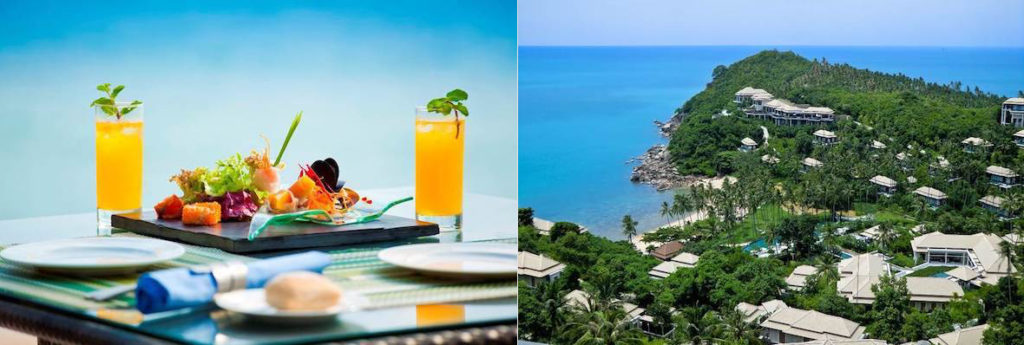The tipping point for a Thai resort might have been the 213,314 plastic bottles the resort passed out to guests in 2017. Or the 42,150 plastic bags they used to haul away trash that year. Or the 176,880 meters of cling film that they used to package food products.
“One of our staff calculated that we could have wrapped this island all the way around three times with all that cling film,” said Remko Kroesen, the general manager at Banyan Tree Samui. “We knew we had to make changes.”
Starting in 2018, the resort implemented changes that now, cumulatively, constitute a sea change in how the resort handles disposables.
The decision came at a time when news headlines had highlighted the gruesome deaths of whales, turtles and other marine life from ingesting plastics in Thai waters.
Last year, Banyan Tree Samui successfully phased out the use of plastic bottles, straws, cutlery and garbage bags. They also quit ordering the 20,158 plastic toothbrushes, shower caps and other bathroom accessories they doled out to guests every year.
In place of the plastic came glass bottles, paper straws, bamboo and wooden cutlery, and corn-based toothbrushes. They ordered biodegradable bags and containers, and large second-hand rice and sugar sacks for the kitchens and for garden waste. Unable to find an environmentally friendly alternative to cling film, they set a strict budget on its purchase.
And finally, the hotel entered into a contract with suppliers so that any remaining plastic bags or containers would be returned for reuse.
In July 2019, a new law enforced a strict ban on the feeding of marine life, wastewater dumping, fishing or anchoring on coral reefs, seabed-walking, and any new coastal construction.
No-smoking and no-littering laws were enacted on the islands a few months earlier.
There have been beach and island closures in the Andaman Sea to allow fish stocks, coral and the environment to recover, including Maya Beach famous for Leonardo Di Caprio’s movie, The Beach.
Among the rare marine life found in the Gulf of Thailand’s sapphire-blue waters are turtles, dugongs, moray eels, reef sharks, seahorses, Irrawaddy dolphins and seven species of whale.
“But it’s no good if only one or two resorts on the island maintain strict environmental practices,” said CSR manager Thepsuda. “We all have to work together to keep this paradise intact.”

